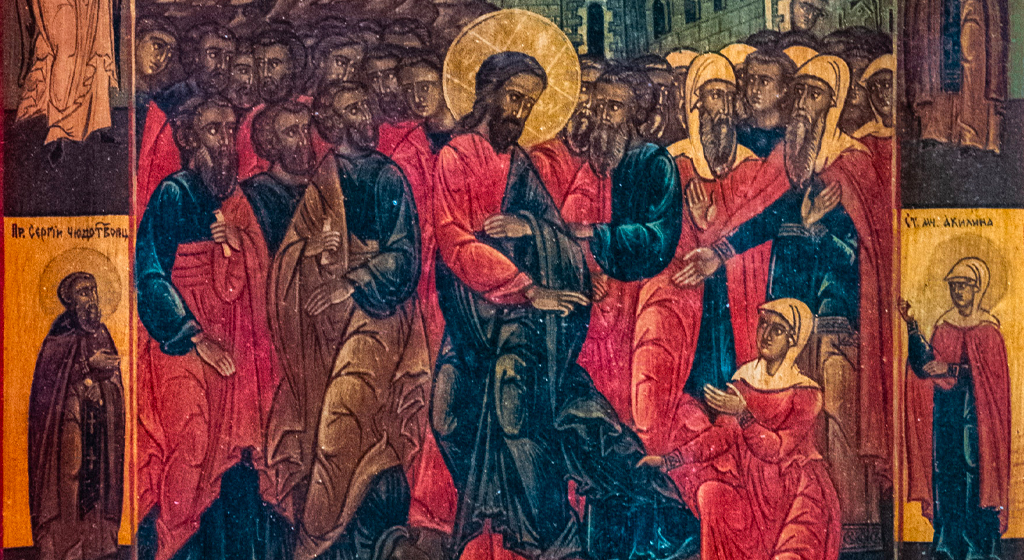Memory of the Poor
European day of memory of the Holocaust
Reading of the Word of God
Alleluia, alleluia, alleluia
This is the Gospel of the poor,
liberation for the imprisoned,
sight for the blind,
freedom for the oppressed.
Alleluia, alleluia, alleluia
Hebrews 9,15.24-28
This makes him the mediator of a new covenant, so that, now that a death has occurred to redeem the sins committed under an earlier covenant, those who have been called to an eternal inheritance may receive the promise. It is not as though Christ had entered a man-made sanctuary which was merely a model of the real one; he entered heaven itself, so that he now appears in the presence of God on our behalf. And he does not have to offer himself again and again, as the high priest goes into the sanctuary year after year with the blood that is not his own, or else he would have had to suffer over and over again since the world began. As it is, he has made his appearance once and for all, at the end of the last age, to do away with sin by sacrificing himself. Since human beings die only once, after which comes judgement, so Christ too, having offered himself only once to bear the sin of many, will manifest himself a second time, sin being no more, to those who are waiting for him, to bring them salvation.
Alleluia, alleluia, alleluia
The Son of Man came to serve,
whoever wants to be great
should become servant of all.
Alleluia, alleluia, alleluia
With the term "covenant" (testament) the author of the letter refers to a firm commitment - as this term is used in juridical terminology - made by God himself to his people. It is in this horizon that the death of Jesus, which happened once for all, demonstrates the eternal validity of the pact God established. The cross is not annulled by Easter. On the contrary, the entire ritual theology of the author of the letter tends to portray Christ's sacrifice as an eternally lasting event that continuously works salvation. Jesus' death is necessary for our salvation. In the sprinkling of the book and the people with blood done by Moses on Sinai, the author reads the figure of death on the cross. We might infer that the "word of the Gospel" should also be sprinkled with blood. In short, one cannot separate the Gospel from the cross: Jesus' death is not a necessary reparation to forgive sins but the logical conclusion of a love that leads to giving one's life for the salvation of others. Through his sacrifice, Jesus has already made us enter the heavenly sanctuary. Therefore, when the letter speaks of "heavenly" realities, it does not mean realities far away from us, but the Church, the community of believers, understood as a house of prayer, fraternity and love for the poor. The uniqueness of Christ's sacrifice also applies to the Church understood as the place where Christ dwells and is manifested. That is why she is the first fruits of salvation: in her the unity of the peoples of the earth is already realised, as Vatican II states: the Church is a sign and instrument of the unity of the human race. We cannot today, 27 January, European Holocaust Memorial Day, fail to remember the atrocious violence to which millions of Jews were subjected in the Nazi death camps and in the many places where they were exterminated during the Second World War. May this day be for all an indelible memory and a warning against rising anti-Semitism and all forms of racism: it is contempt that leads to the elimination of the other.
